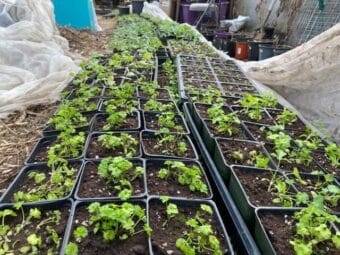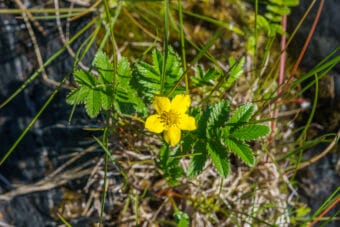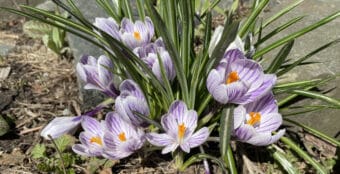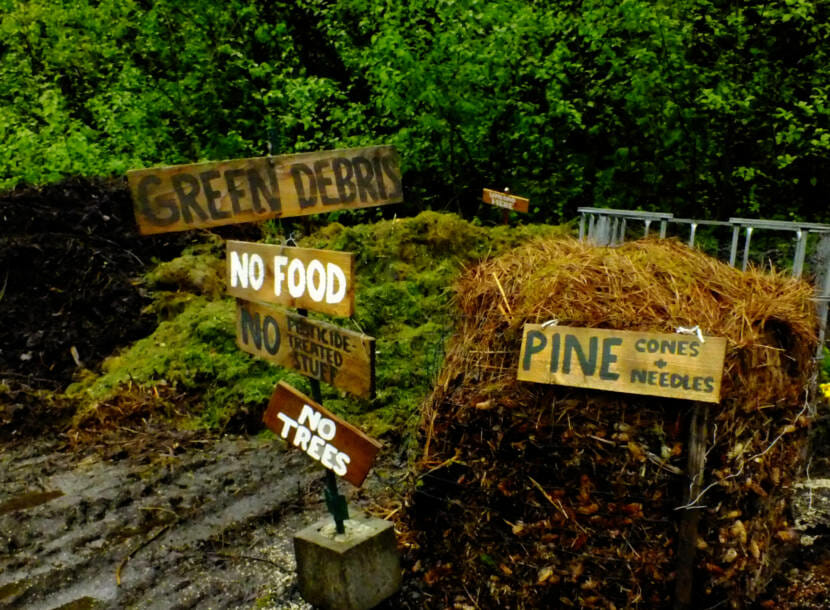
Adding compost to your garden adds nutrients back into the soil while improving its physical properties. With a little patience, gardeners can make their own compost by recycling ingredients found in the kitchen and in the yard. Making compost also helps cut down on the waste stream to the local landfill.
“You just want to make sure that you’re setting yourself up for a good time rather than a bad time. Bears are the big thing to think about (for) a bad time,” said Lisa Daugherty who runs Juneau Composts, a commercial composting operation in Lemon Creek.
“If you’re composting food scraps, you want to make sure you have plenty of carbon (like cardboard) on hand at all times so that no food scraps are ever exposed to the air,” Daugherty said. “If you can see them, if you can smell them, then you’re just kind of asking for trouble.”
Those exposed food scraps can attract flies, squirrels, ravens and bears.
For home composting, she said she creates a pallet bin with four wooden pallets standing up on end and tied together at the corners. A cover is placed over the top of the bin so the compost is not saturated by rain.
The front pallet is split in half so she can open up the bin and use a pitchfork or shovel to turn the compost or aerate the pile. Turning the pile on a regular basis provides oxygen for the microbes which will help them break everything down faster.
“People tend to think about greens and browns or carbons versus nitrogens,” Daugherty said. “But basically, you’re just trying to have a diversity of material. So, food scraps, yard debris, leaves, shredded paper, cardboard, sawdust, (and) moss.”
“I think the more diverse your inputs are, the better your compost is going to be.”
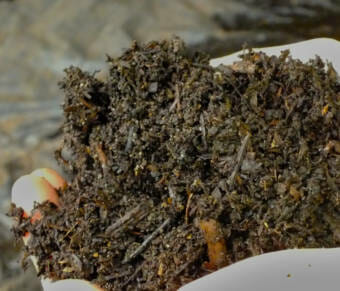
Daughtery admits that she’s not a big fan of the composting drum turners that are sold by retailers because they are hard to crank and attract a lot of flies.
“Flies are going to fly out at you from the opening and to me, that’s not a very pleasant experience,” Daugherty said. “I think of composting as you should feel like you’re working in your garden. You shouldn’t feel like you’re working at the dump.”
Daugherty said things like spent grains from home brewing are great for the compost pile.
But she doesn’t recommend that novice composters put in weeds, seafood, meat, or dog poop, especially if they’re not sure if their compost pile is getting hot enough.

